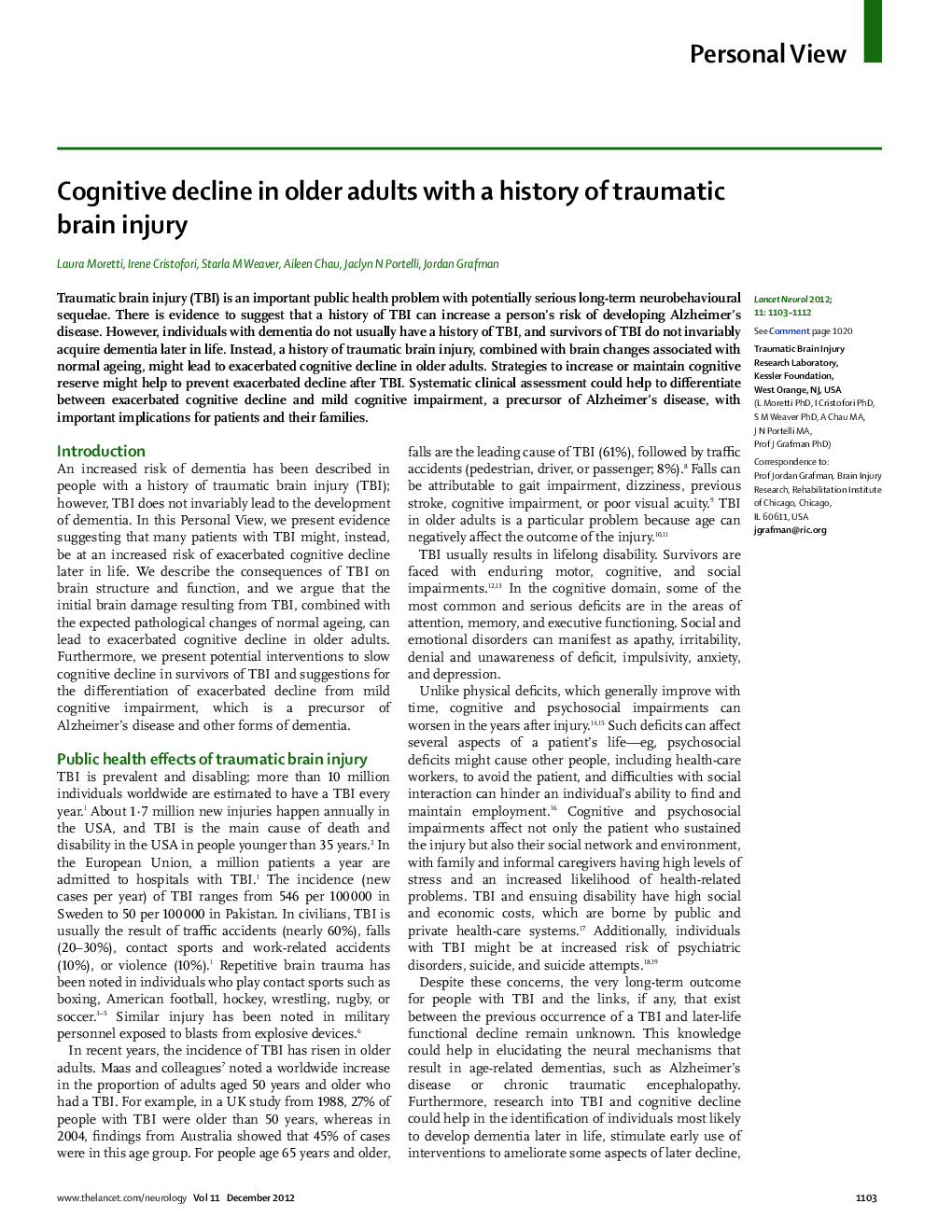| Article ID | Journal | Published Year | Pages | File Type |
|---|---|---|---|---|
| 3066514 | The Lancet Neurology | 2012 | 10 Pages |
SummaryTraumatic brain injury (TBI) is an important public health problem with potentially serious long-term neurobehavioural sequelae. There is evidence to suggest that a history of TBI can increase a person's risk of developing Alzheimer's disease. However, individuals with dementia do not usually have a history of TBI, and survivors of TBI do not invariably acquire dementia later in life. Instead, a history of traumatic brain injury, combined with brain changes associated with normal ageing, might lead to exacerbated cognitive decline in older adults. Strategies to increase or maintain cognitive reserve might help to prevent exacerbated decline after TBI. Systematic clinical assessment could help to differentiate between exacerbated cognitive decline and mild cognitive impairment, a precursor of Alzheimer's disease, with important implications for patients and their families.
